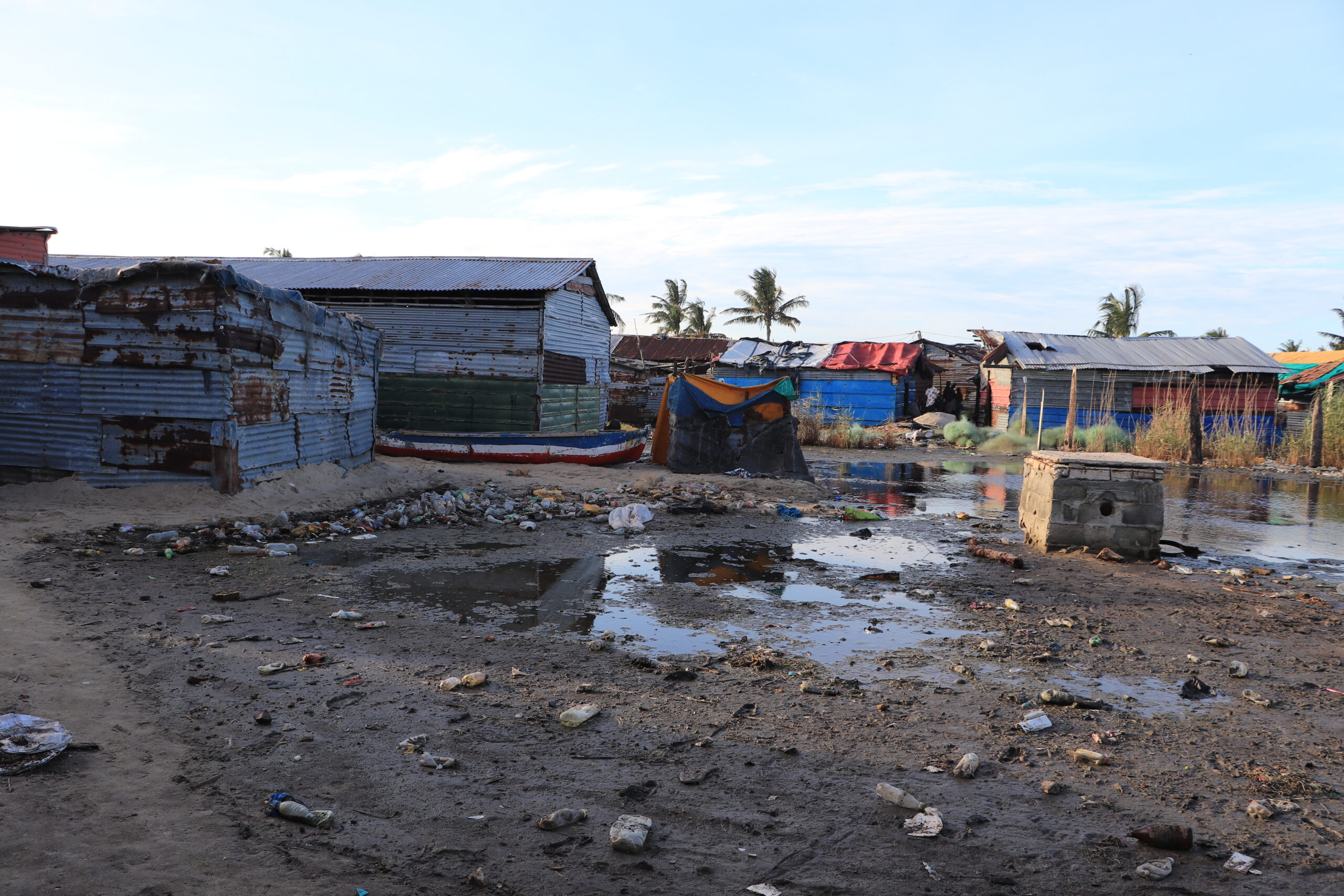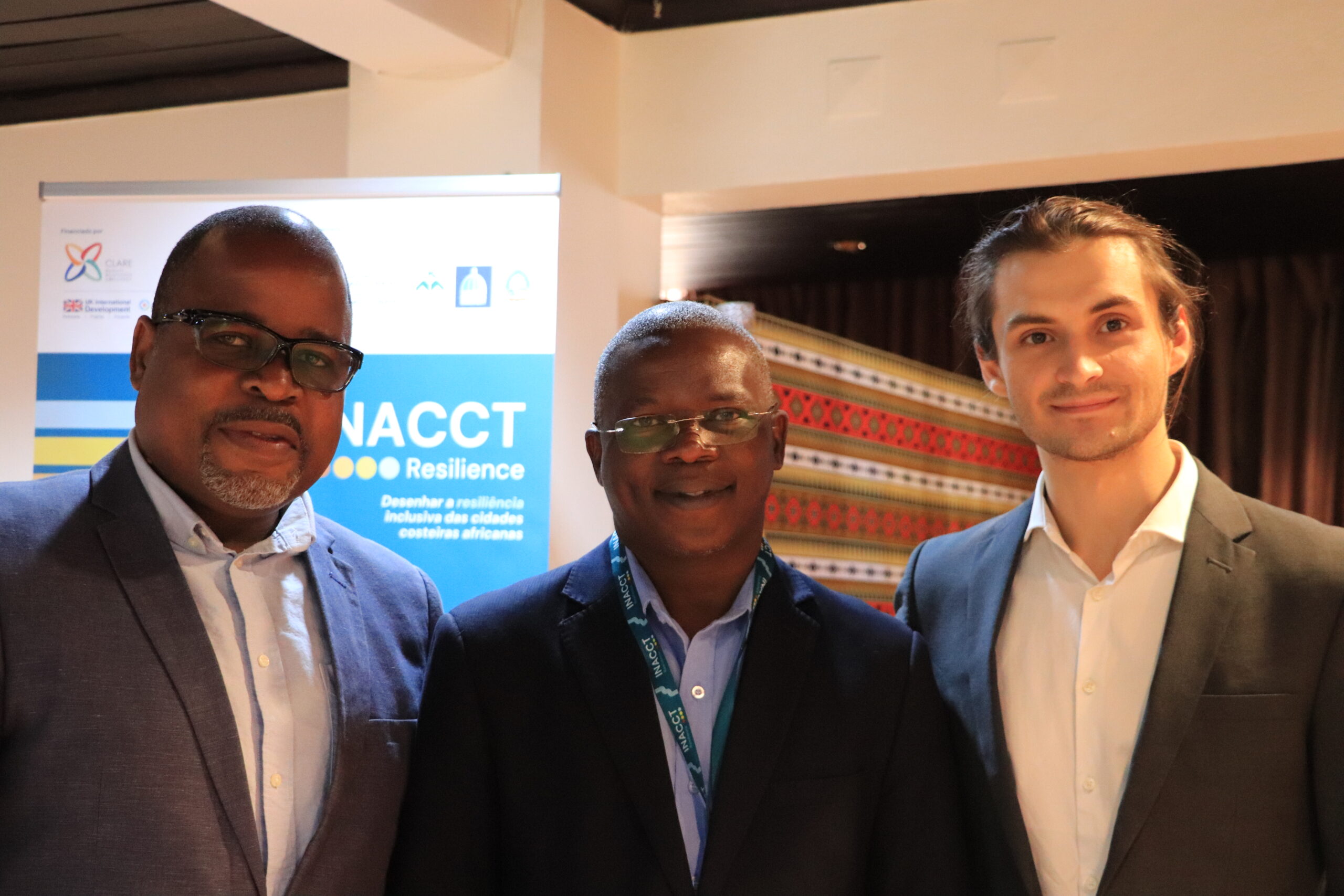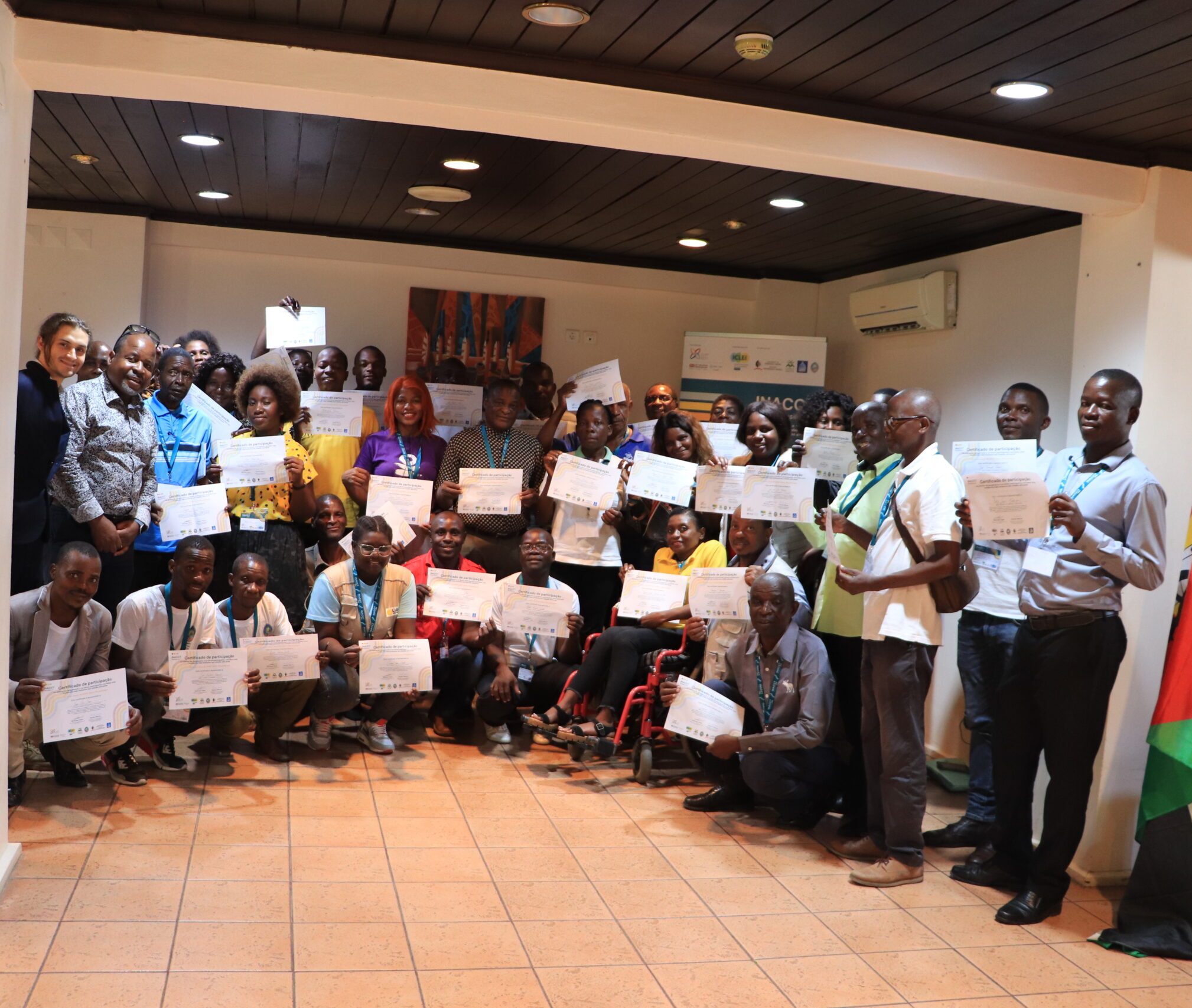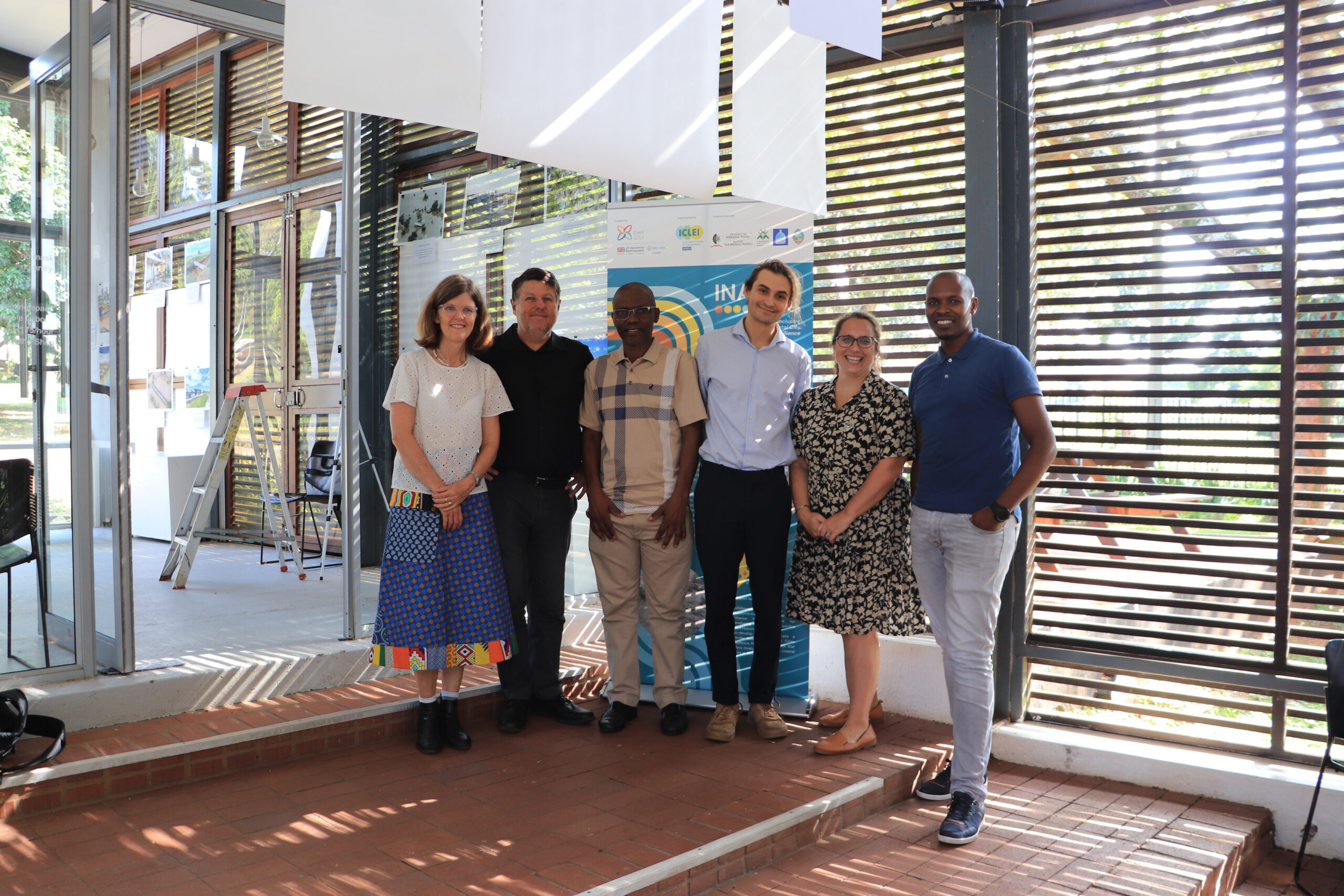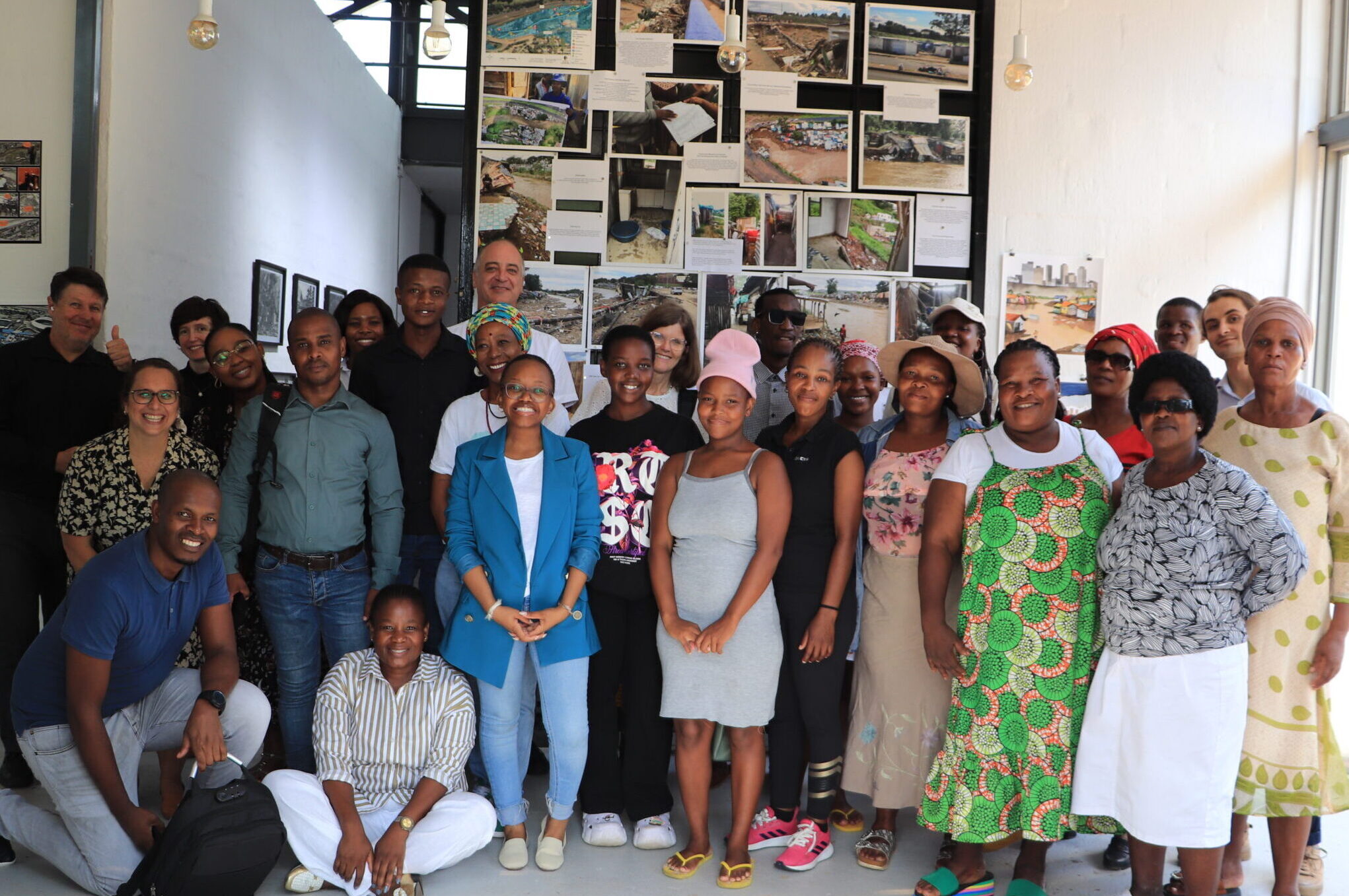17 April 2024
Co-creating inclusive resilience in African cities
In the face of escalating climate-related disasters, the call for proactive and inclusive resilience planning has never been more urgent.



In the face of escalating climate-related disasters, the call for proactive and inclusive resilience planning has never been more urgent. Amidst this imperative, the INACCT Resilience project, led by ICLEI Africa, in collaboration with University of Kwazulu Natal, Eduardo Mondlane University, eThekwini Municipality and Beira Municipality, is a critical initiative that embodies the ethos of collaboration and inclusivity in confronting the challenges posed by climate change.
In recent years, coastal cities such as eThekwini (Durban) in South Africa and Beira in Mozambique have borne the brunt of extreme climate events. Devastating floods claimed hundreds of lives, displaced thousands more, and wrought havoc upon both environmental and urban infrastructure. In response to these crises, the INACCT Resilience project, funded through the Climate Adaptation and Resilience (CLARE) initiative, aims to strengthen urban resilience planning, particularly for vulnerable communities and informal settlements. At its core, the project embraces a transdisciplinary approach, emphasising the importance of co-learning and co-designing inclusive solutions. This entails integrating diverse forms of knowledge and evidence from a variety of stakeholders, including marginalised voices often overlooked in conventional decision-making processes.
Empowering voices, strengthening resilience: Beira learning lab
The recent two-day learning lab held in Beira, Mozambique, served as a stark reminder of the critical role collaboration plays in addressing the climate crisis. During this event, community members and experts alike shared key insights, highlighting the indispensable role of collaboration in fostering diverse expertise, pooling resources and incorporating varied perspectives essential for creating comprehensive solutions to climate-related challenges.
The event shed light on the necessity of inclusivity in climate resilience planning. By actively involving women, children, people with disabilities and other marginalised groups, policies and strategies can be tailored to address their unique needs, vulnerabilities and contributions. The inclusion of diverse voices not only enhances the effectiveness and equity of adaptation efforts, but also ensures that no-one is left behind in the face of environmental catastrophes.
Five key takeaways from the Beira learning lab were:
1
Collaboration is crucial for climate-change resilience as it fosters diverse expertise, resources and perspectives necessary to develop comprehensive solutions and adapt effectively to environmental challenges.
2
Inclusivity, particularly involving women, children and people with disabilities, is necessary to ensure that policies and strategies address the diverse needs, vulnerabilities and contributions of all individuals. This leads to more effective and equitable climate adaptation efforts.
3
Including women in climate resilience planning is vital because their perspectives, knowledge and leadership contributes to more holistic and effective strategies that address the diverse impacts of climate change on communities.
4
Education is paramount in climate change resilience, particularly in African cities, as it empowers communities with the knowledge and skills needed to understand, adapt to and mitigate the impacts of environmental challenges effectively and more equitably.
5
The people of Beira demonstrate significant adaptability, perseverance and ingenuity in navigating challenges, utilising available resources creatively to overcome obstacles and build resilience in the face of adversity.
The Beira learning lab was attended by academics, municipal and city officials, prominent organisations and community representatives who all share the same goal – to make Beira a more resilient city in the face of climate change. Pictured here (from left): UEM Professor Genito Maure; Mayor of Beira, Albano Carige; ICLEI Africa Professional Officer, Nicolas Gate.
Photo credit: ICLEI Africa
Using art for impact: Ethekwini art exhibition and learning lab
Similarly, the art exhibition and learning lab held in eThekwini, South Africa, further emphasised the importance of amplifying the voices of the marginalised in resilience planning. The event highlighted the disproportionate impact of climate change on vulnerable communities and stressed the urgency of implementing practical, effective and inclusive solutions to mitigate disaster risks.
Five key takeaways from the eThekwini exhibition and learning lab were:
1
Climate change disproportionately affects vulnerable communities, including marginalised groups and low-income populations. By including their voices, solutions can be designed to address underlying social inequities and ensure that the most vulnerable are not left behind.
2
Practical, effective, low cost and inclusive solutions to flooding and other disaster risks already exist – funding and support is urgently required to implement these.
3
Communication and collaboration across scales and between state and non-state actors is key for resilience building.
4
Cultural beliefs regarding flooding and disaster risks require more meaningful consideration in resilience planning.
5
Communities continue to suffer the impacts of disasters long after the event through trauma and loss of social structures, and often feel isolated in these experiences.
INACCT Resilience is proudly implemented by ICLEI Africa, in partnership with eThekwini Municipality, the University of KwaZulu-Natal, Beira Municipality and the University of Eduardo Mondlane. Pictured here (from left): UKZN Professor Catherine Sutherland; Senior Manager in the Climate Change Department at eThekwini Municipality, Dr Sean O’Donoghue; Acting Head: Development, Planning, Environment & Management at eThekwini Municipality, Sbu Ndebele; ICLEI Africa Professional Officer, Nicolas Gate; ICLEI Africa Senior Specialist in Climate Change, Dr Hayley Leck, and Senior Climate Change Scientist at eThekwini Municipality, Smiso Bhengu.
Photo credit: ICLEI Africa
By co-creating and sharing a Gender-responsive Coastal Cities Resilience Planning Framework, the project seeks to inspire and empower cities across the continent to adopt similar approaches, fostering collaboration and inclusivity in the fight against climate change. Project activities and collaborative engagements with diverse stakeholders are ongoing in support of developing the framework. Looking ahead, the INACCT Resilience project aims to disseminate its findings and lessons learned to other African coastal cities, catalysing a ripple effect of inclusive resilience planning.
The INACCT Resilience project serves as a testament to the transformative power of collaboration and inclusivity in building climate resilience. Central to the project’s success is the role played by each partner and close partnerships with community members and government representatives. As project lead, ICLEI Africa is dedicated to promoting sustainability and resilience in African cities. Through our expertise and networks, ICLEI Africa has facilitated collaboration and knowledge exchange, amplifying the voices of marginalised communities and ensuring that resilience efforts are both locally grounded and globally informed.
About the project funder
INACCT Resilience is funded through the Climate Adaptation and Resilience (CLARE) initiative. CLARE is a £110m, UK-Canada framework research programme on Climate Adaptation and Resilience, aiming to enable socially inclusive and sustainable action to build resilience to climate change and natural hazards. CLARE is an initiative jointly designed, funded and run by the UK Foreign Commonwealth and Development Office and Canada’s International Development Research Centre. CLARE is primarily funded by UK aid from the UK government, along with the International Development Research Centre, Canada.


